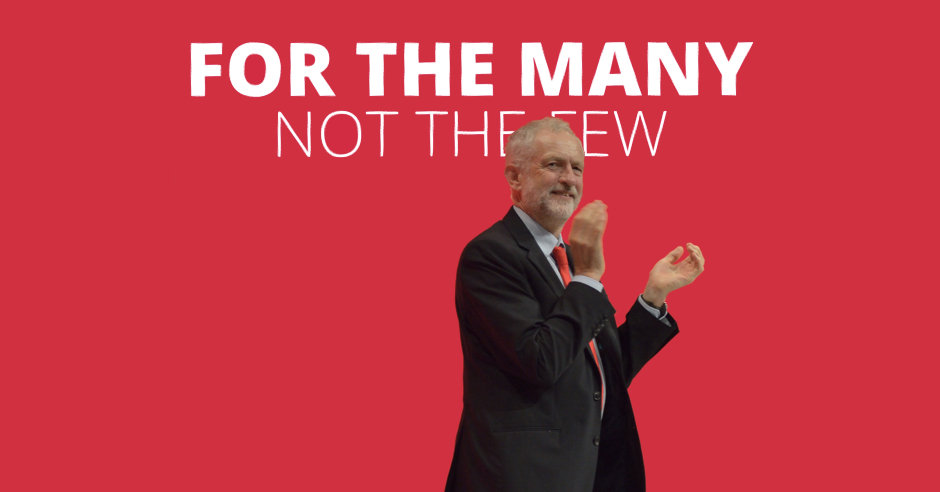CAA’s message to new Labour leader: disciplining Jeremy Corbyn is your litmus test
The new leader of the Labour Party will commence his or her term in office during the worst health crisis in living memory, but that must not delay dealing with another priority, addressing the Party’s need for internal reforms, starting with unravelling its institutional antisemitism.
On the campaign trail, the contenders have often spoken of the importance of a “litmus test” to evidence whether antisemitism is being taken seriously. Naturally, the recommendations of the Equality and Human Rights Commission (EHRC), which will come in due course, must be implemented in full. But the real litmus test is more immediate and it has a name: Jeremy Corbyn.
Mr Corbyn’s leadership failed electorally, moreover it wrecked Labour’s record as an anti-racist party and led to swathes of the Jewish community questioning their future in Britain. Restoring the Party’s credibility is no small task, particularly if the new leader is from Mr Corbyn’s frontbench, but it must begin with disciplining the outgoing leader.
The EHRC’s full statutory investigation into Labour was launched following a formal referral from Campaign Against Antisemitism, which is the complainant. But what has not been revealed until now is that the original impetus for the investigation was the Labour Party’s repeated refusal to treat seriously a series of complaints that our organisation made against Mr Corbyn.
The process of repairing the Labour Party must begin with the man who did so much to break it by refusing to address its scourge of anti-Jewish racism and at times personally indulging in it.
Mr Corbyn’s offences during his long parliamentary career are documented on our website. They include working to excommunicate Labour’s Jewish affiliate; claiming that Israel exercises an outsized influence in the British media; describing the antisemitic genocidal terrorists of Hamas and Hizbollah as his “friends”; endorsing the comparison of Israel’s policies to those of the Nazis; trying to undermine the centrality of the genocide of the Jews in Holocaust Memorial Day; writing an adulatory foreword to an antisemitic book; defending an Islamist preacher banned from Britain for indulging in the medieval blood libel that accuses Jews of using the blood of non-Jewish children to bake bread; backing the disgraced Reverend Stephen Sizer; defending an obviously antisemitic mural; suggesting that British “Zionists” lack a sense of irony despite having lived here their whole lives; instigating the whitewash Chakrabarti Inquiry and then awarding its author with the peerage that he promised never to bestow on anyone; describing The Guardian journalist Jonathan Freedland’s motives in raising the matter of Labour antisemitism as “disgusting subliminal nastiness”; and directly interfering in numerous disciplinary cases on behalf of the offending Labour members while standing by (at best) while Jewish women MPs were hounded out of his Parliamentary Party.
To top it off, Mr Corbyn was opposed to the adoption of the International Definition of Antisemitism by the Labour Party. He may have been motivated in part by the recognition that allowing the adoption to proceed might highlight his own multiple breaches of the definition and require the Party to act against him. Regrettably, even after the Party’s reluctant adoption of the definition, it failed to do so.
But Mr Corbyn’s retirement as Labour leader is only the first step. What matters now is how his successor deals with him. It is not enough simply to ‘draw a line’ and start afresh; the whitewash Chakrabarti report into antisemitism in the Party tried to do that several years ago and the problem only got worse.
It is Mr Corbyn’santi-Jewish legacy that must now be addressed and exorcised from the Party, and that must begin with him. Our review of the records of all Parliamentary candidates in the recent General Election showed not only that Mr Corbyn was himself responsible for a breathtaking fifteen percent of all incidents involving antisemitism, but that Labour’s candidates accounted for a breathtaking 82 percent of all of the incidents across all parties.
Most worryingly, however, was the finding that a third of incidents related to Labour’s new candidates who had never held Parliamentary office before. Far from investigating and eliminating antisemitism, as he deceptively claimed, Mr Corbyn and his allies in the Party’s headquarters and on its ruling bodies have injected more of it into Parliament.
This problem is not confined to the House of Commons: one post-election poll showed that nearly three quarters of Labour members said that the issue of antisemitism in the Party was “invented or wildly exaggerated”, with that denial rising to over 90% among members of the pro-Corbyn Momentum group. Only one in five Labour members agreed that “antisemitism was a real problem” in Labour.
Naturally, the Party’s disciplinary processes must be made independent and its sanctions enhanced – that much is clear. There are plenty of other important measures that the Party should introduce, and we have made those recommendations to the EHRC as part of our recently-concluded legal submissions.
But Mr Corbyn must be made to bear personal responsibility for his central role in cultivating anti-Jewish animus in his Party. This will send a message to other culpable MPs, officials and members that they cannot hide.
The candidates have talked of a litmus test: disciplining Mr Corbyn must be it.



